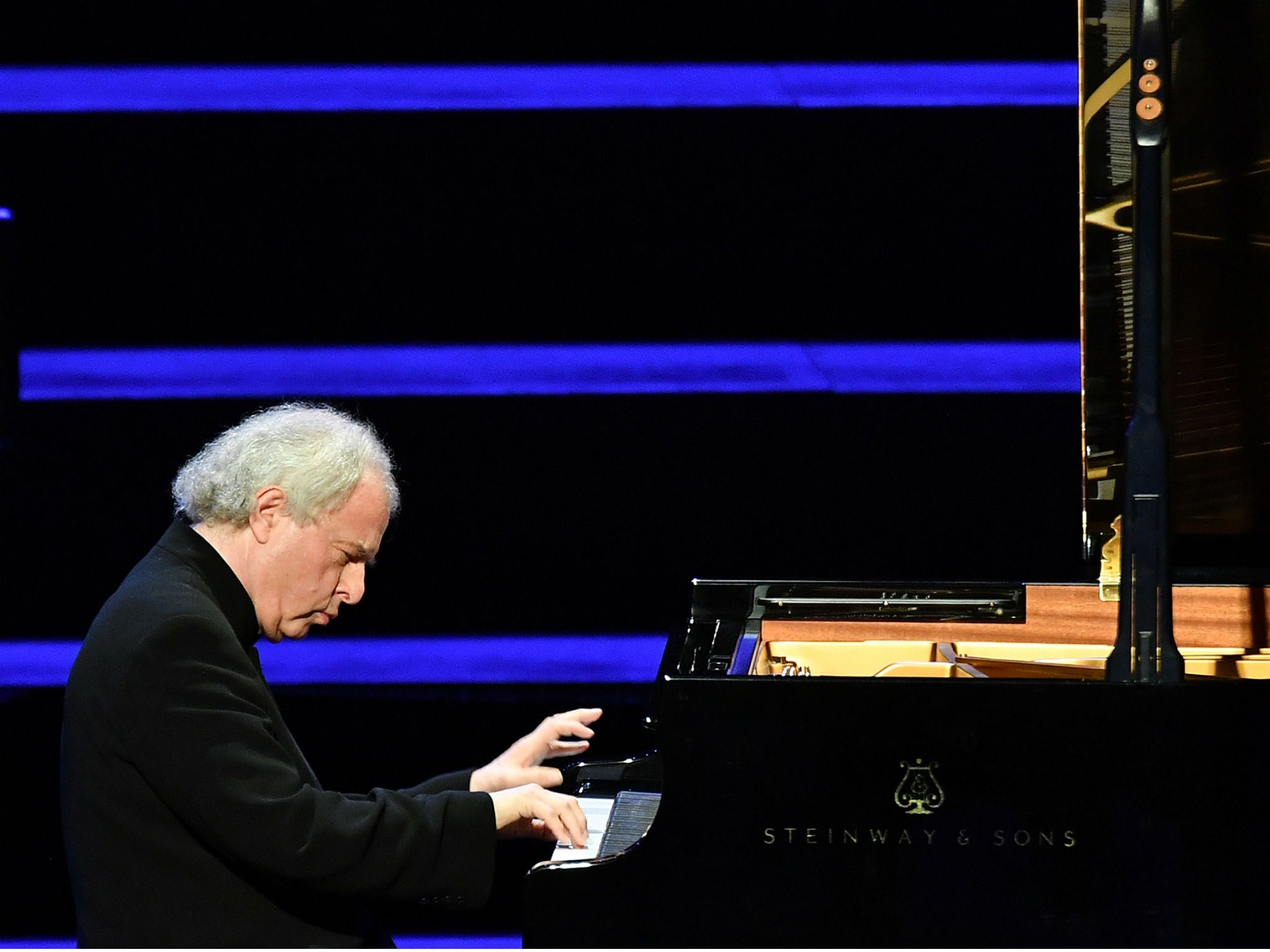Prom 63: Andras Schiff, The Well-Tempered Clavier Book II, Royal Albert Hall, London, review - A musical meditation for our troubled times
A thoughtful, sober, and understated performance

Imagine an actor playing Hamlet. Then imagine him also taking every other role in the play as well – from memory, without an interval, alone on stage in front of an audience of thousands. That is what it means for a pianist to perform the complete Book II of Bach’s The Well-Tempered Clavier at the Proms.
24 Preludes and Fugues – almost three hours of intricate, inventive, elusive music – played as a single, continuous gesture is an almost unthinkable feat. But if we fetishize the spectacle of the thing, the musical circus, we miss the point of this thoughtful, sober, even understated performance by Andras Schiff.
This isn’t the Hungarian-born pianist’s first solo Bach experience at the Proms. Last year he introduced Book I to the festival audience for the first time, and before that performed the complete Goldberg Variations. But Book II is a different beast. Harder, longer, knottier both in conception and execution, pushing the pianist still further. You only have to listen to the difference between the C major Preludes that open each book; the untroubled waters of Book I are ruffled and agitated in Book II, our starting point for this epic musical journey suddenly unclear.
Playing a bright, resonant Steinway rather than his usual Bosendorfer (a concession to the vast space of the Royal Albert Hall), this was Bach with more boom and bloom than we’re used to from Schiff, but there was no expressive indulgence or romanticising to go with this broader tone. He used the pedal only sparingly – to give us the organ-like splendour and sonority of the E major Fugue, for example – and rhetorical intervention still more so – just the tiniest of flexibility in the aria-like C sharp minor Prelude offered a contrast to the unfussily metronomic delivery that dominated.
As the cycle progressed and harmonies convulsed and coiled more tightly, rhythms shifting left of centre in fugues that straddle precariously across the beat, Schiff found new energy and clarity, always offering his audience a string through the musical maze. There was seriousness, undisguised complexity here, but also play – the ingenuous, nursery-rhyme innocence of the F major Fugue, the trickling sweetness of the G major Prelude. Here was all of life, and it was exhilarating, confronting and, ultimately, consoling – a musical meditation for our troubled times.
Subscribe to Independent Premium to bookmark this article
Want to bookmark your favourite articles and stories to read or reference later? Start your Independent Premium subscription today.

Join our commenting forum
Join thought-provoking conversations, follow other Independent readers and see their replies